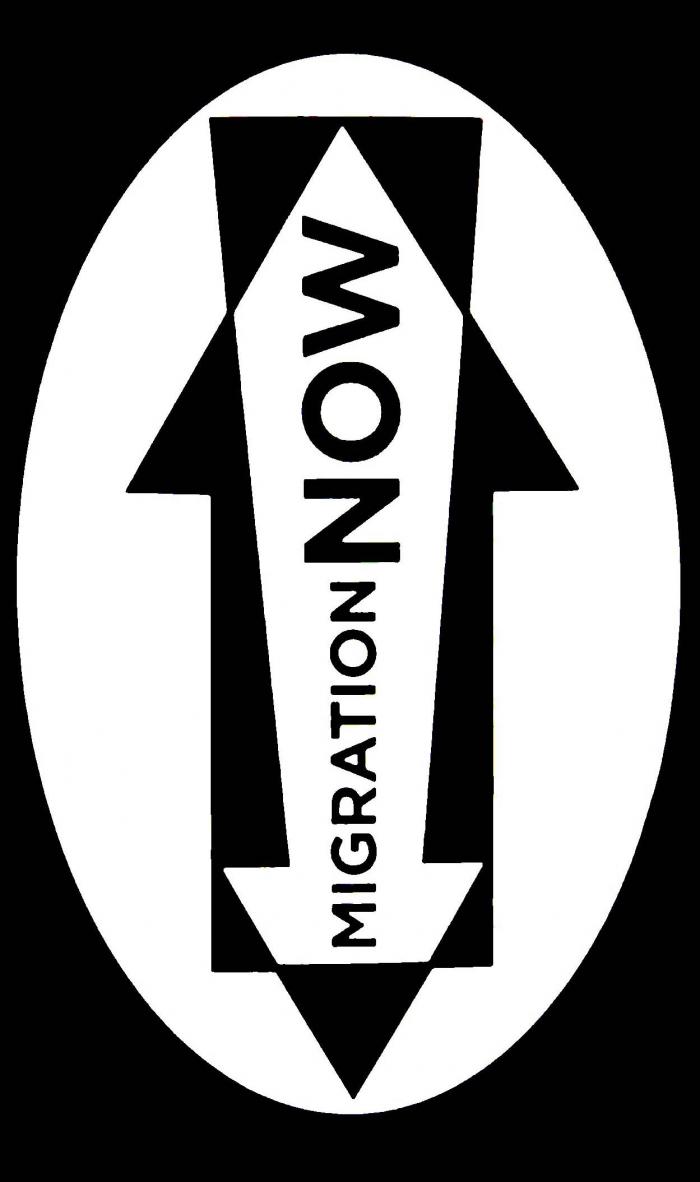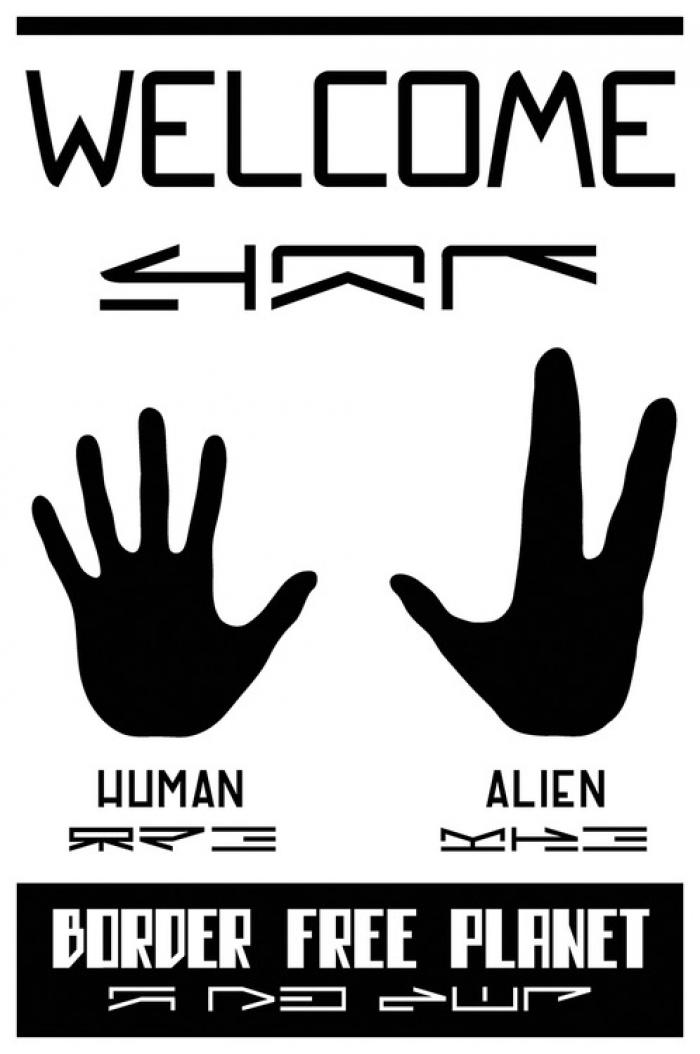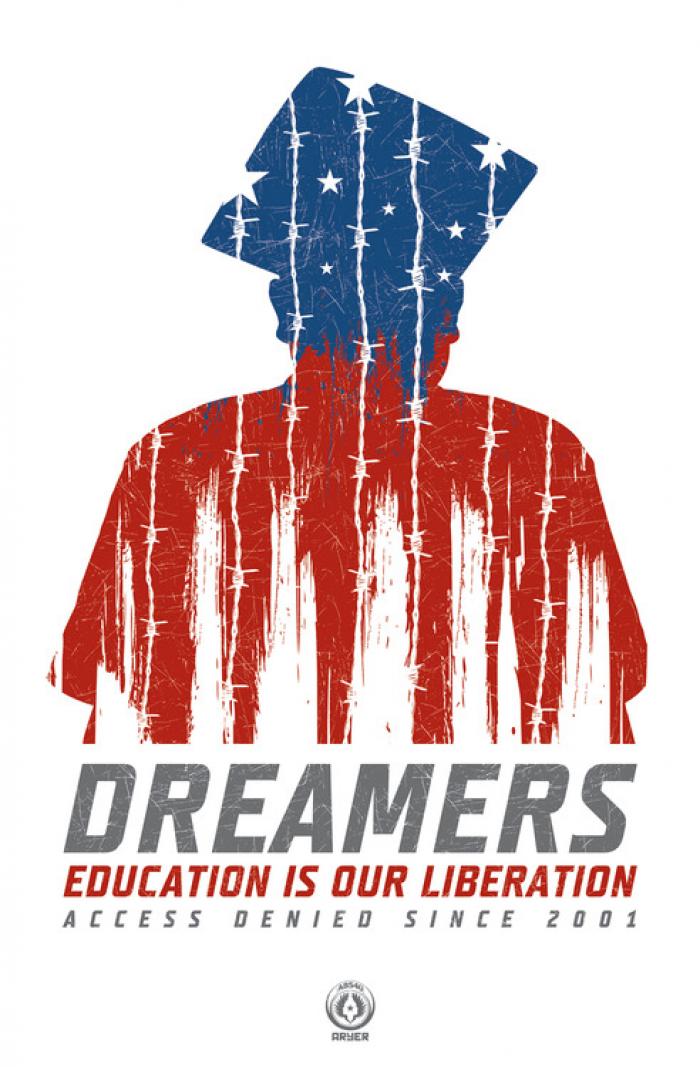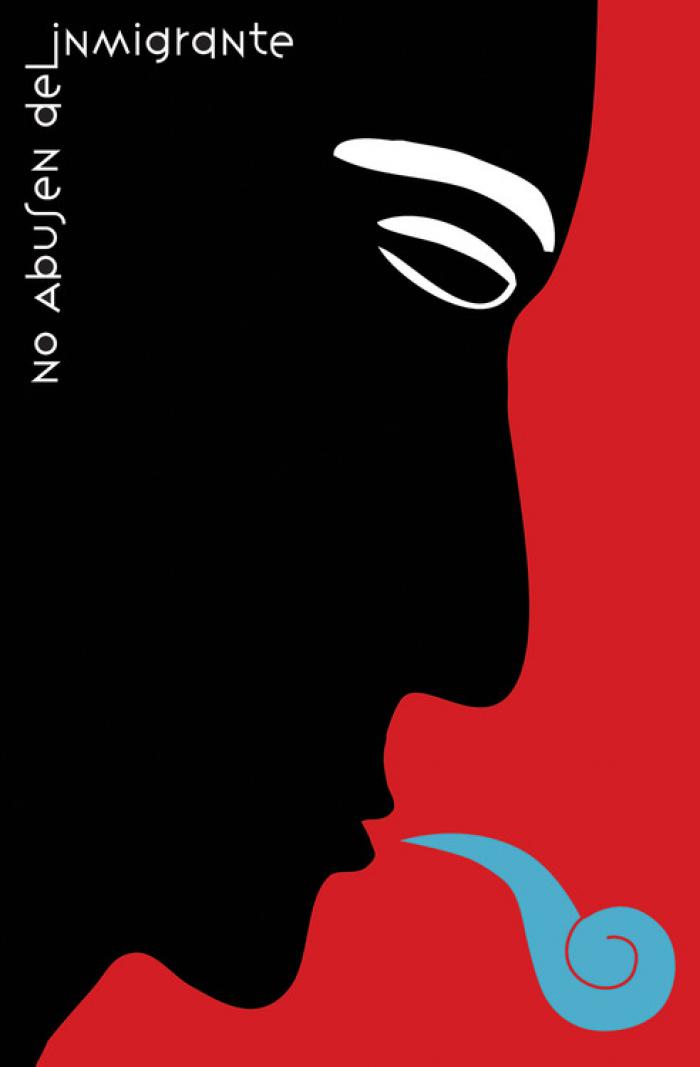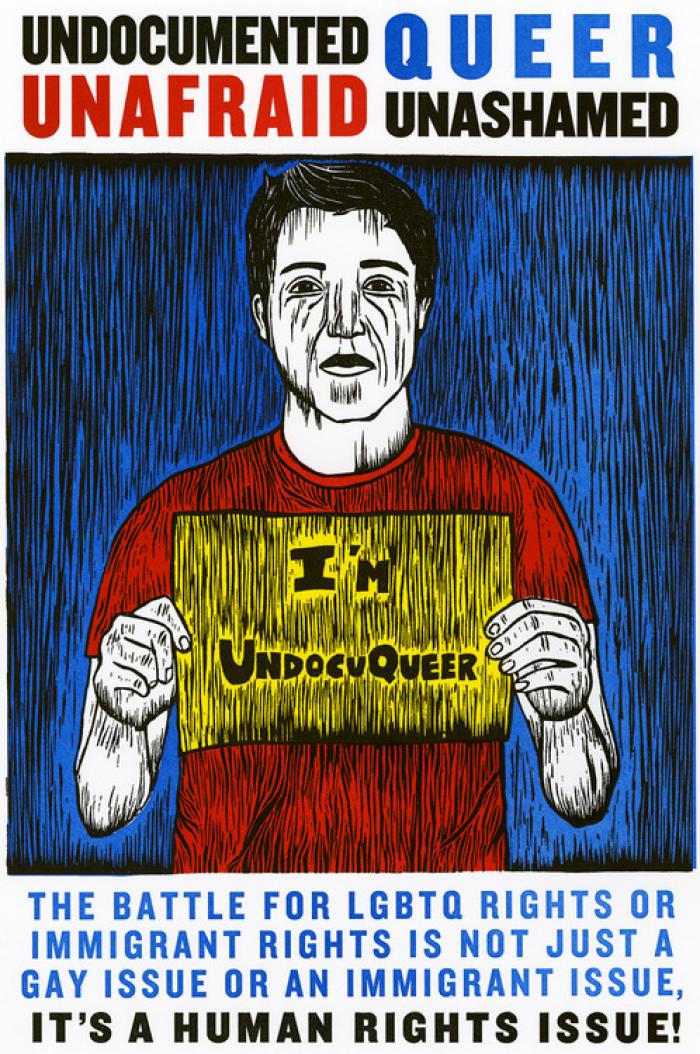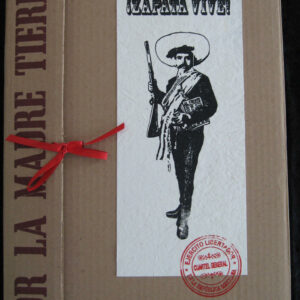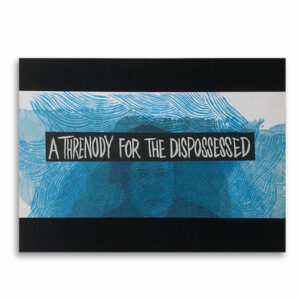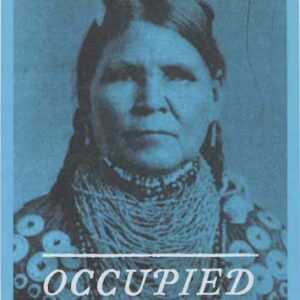Migration Now!
Migration Now!
Date
2012
Edition Size
140
Media
Letterpress, Silkscreen
Binding
Loose pages
Format
Dimensions
18 × 12 × 0.75 in
Publisher
CultureStrike, JustSeeds Artists' Cooperative
Collection
Print Portfolios$ 2,400.00
3 in stock
View Collectors
Arizona State University (ASU) Museum of Art
Azusa Pacific University
Bucknell University
Cornell University
Dartmouth College, Hood Museum
Duke University
Florida Atlantic University (FAU), The Jaffe Book Arts Collection
George Mason University (GMU)
Grinnell College
Harvard University, Fine Arts Library
Louisana State University (LSU)
Michigan State University
Pequot Library
Ringling School of Art and Design
San Jose State University (SJSU)
Savannah College of Art & Design (SCAD)
Scripps College, Denison Library
Smith College, Mortimer Rare Book Room
St. Olaf College
Stanford University
Swarthmore College
Temple University
The Evergreen State University
The Pennsylvania State University (Penn State)
The University of Iowa (UI)
The University of New Mexico (UNM)
The University of Texas (UT)
University of Arizona Library
University of California, Berkeley (UCB), The Bancroft Library
University of California, Irvine (UCI)
University of California, Los Angeles (UCLA)
University of California, San Diego (UCSD)
University of California, Santa Barbara (UCSB)
University of California, Santa Cruz (UCSC)
University of Central Florida (UCF)
University of Colorado at Boulder
University of Delaware Library
University of Houston
University of Michigan, Labadie Collection
University of Minnesota
University of Pittsburgh
University of Puget Sound
University of Southern California (USC)
University of Vermont
University of Washington Libraries
University of Wisconsin-Madison, Special Collections
Washington University in St. Louis
Wesleyan University, Olin Library
Yale University, Robert B. Haas Family Arts Library
“Migration is a phenomenon, not a problem, something that simply is. The right to migrate and to move freely is our human right. When societies restrict or choke off the movements of their citizens, they end up doing the work of a dam — they generate power and control floods, but in doing so they destroy life and wreck the surrounding space.
We want to re-imagine migration as an inevitability, as a social practice that is not to be prevented but to be related to, like weather. All migration starts with social relationships. When people move, they are going either towards their families or communities, or more often, away from them. They move to help their relatives, or support them by leaving. People migrate because their homes stifle them, because those homes become burdens they need to shed in order to have full lives. They move in search of opportunity, or to escape their past, or to simply survive. They move because of lies they are told and that they come to believe, and they move to fulfil the most beautiful and fragile of dreams. Migration is fundamentally about our right to move freely across planet Earth, in search of our fullest and best selves. As the neoliberal model of globalization has extended its reach across the globe, it has come to embody some glaring contradictions: in the modern system, capital can move freely and unhindered across borders, while people cannot. The crude sweep of globalization has affected how we survive; what we eat, breathe, drink; how we access the common resources that for centuries have helped us thrive. Globalization has destroyed and displaced the livelihoods of millions around the globe, and when millions seek to follow the money to where they might build new lives, they are branded illegal, alien, and unwanted, cast out or subjected to second-class citizenship. The same forces that displaced migrants now open up prisons to warehouse those who break migration laws – laws that are designed to criminalize, punish, and deport. Walls go up in the desert to stop the free flow of humans and other living beings, but building walls on the borders between nations will never stop people from moving. Appealing to notions of security does little but make people fear their neighbors and ignore the real dangers that they face: a rapacious economic system that values profits over people, a vanishing natural world, and the distance between all of us that grows with every fearful glance. Art and culture are the realm of ideas, images, and stories; it is where people make sense of the world, where they find meaning and forge community. History shows that when the culture changes, politics follows. Art has a crucial role to play in transforming, redefining, and reimagining the global phenomenon of migration. When it comes to migration, the discourse rarely focuses on the stories of real people trying to succeed; instead, the frame is dominated by criminality and punishment. We believe that when we share our images and tell our stories, we illustrate the human struggle and win over broad audiences. Art drives ideas home in a way that is unmatched by any other medium- movements soaked in art can bloom, grow more powerful, and establish deeper roots. Many of the artists involved in the Migration Now portfolio are students of the great traditions of political printmaking, such as Mexico’s Taller de Grafica Popular and the inflammatory street graphics of revolutionary France in 1968 – graphic traditions which inform the works included here. Migration is a lens through which we can interpret contemporary society and the focal point around which so much turns: race and culture, gender and sexuality, class and representation, economics and the natural world; new ideas, bad ideas, the harshest cruelty and the most open arms – all are there, spinning in tight orbit around people’s innate desire to move.In addition to the members of Justseeds (like Mexican Anarchist block-printer and muralist, Santiago Armengod, Bay-Area Xicana activist and printmaker, Melanie Cervantes, curator and propagandist, Josh MacPhee, and Indigenist University of Michigan professor, Dylan Miner), participating artists include former Minister of Culture for the Black Panther Party, Emory Douglas, Undocumented DREAM Act agitators, Julio Salgado and Felipe Baeza, and Chinese-American visual artist and designer Imin Yeh. Others involved include renowned cartoonists, labor organizers, street-art provocateurs, and culture workers from across North America. More than half of the participating artists are members of the Justseeds Artists’ Cooperative.”
— Migration Now organizers, Favianna Rodriguez & Roger Peet
Migration Now is a print portfolio co-produced by Justseeds and CultureStrike which explores the social, cultural, and emotional facets of the ever-topical issue of immigration.
Contributing Artists:
Lalo Alcaraz, Santiago Armengod, Felipe Baeza, Jesus Barraza, Shaun Slifer & Janay Brun, Kevin Caplicki, Melanie Cervantes, Irina Crisis, Raoul Deal, Emory Douglas, El Mac, Molly Fair, Thea Gahr, Art Hazelwood, Ray Hernandez, Nicolas Lampert, Josh MacPhee, Oscar Magallanes, Fernando Martí, Cesar Maxit, Dylan Miner, Claude Moller, Oree Original, Diance Ovalle, Roger Peet, Jesse Purcell, Favianna Rodriguez, Erik Ruin, Julio Salgado, Meredith Stern, Mary Tremonte, Kristine Virsis, Pete Yahnke Railand, Imin Yeh, Ernesto Yerena Montejano, & Bec Young.
Organized by: Favianna Rodriguez & Roger Peet
Printed by: Roger Peet, Jesus Barraza, Patrick Cruzan, & Paul Mullowney
Assistant Printers: Adam Conegan Fischer, Amy Loeb, Jeremy Smania & Corinne Teed
Printed at: Mullowney Printing (San Francisco), Taller Tupac Amaru (Oakland), & Flight 64 studio (Portland)
Handprinted with custom paper encasement. Unbound. 18″ x 12″ x 0.75.” 37 prints. Numbered edition of 140. 2012.
See more images at migrationnow.com.

